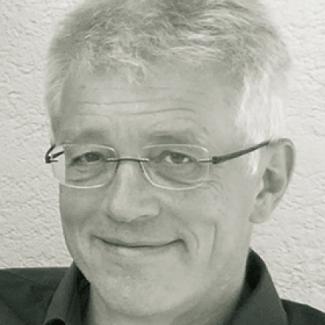Special economic zone
Build something attractive
Once again, policy debate in the EU is focusing on migration. One thing EU leaders seem able to agree on is to try to keep migrants away from European shores in the first place. Many appreciate the idea of setting up camps in Africa in order to process asylum applications there.
I find this debate depressing for several reasons. European societies are ageing, and it is well understood that we need migration, but we do not have a system for allowing migrants into the EU. European policymakers, moreover, are fond of emphasising human rights, but they pay little respect to the human rights of refugees. When it comes to migration, the EU is therefore neither pursuing its own interests, nor living up to its own principles.
Relying on camps on other continents may comfort xenophobic populists in the short run. In the long run, refugee camps breed frustration, resentment and anger. Militant Islamist groups have found willing recruits in camps – in Pakistan for example. Many Palestinian extremists have similarly grown up in camps.
If the EU really wants to keep migrants away, without excessively damaging its public image and potentially causing long-term security issues, it should try something very different. It should create a place where people want to go. That would make more sense than trying to keep them in places where they don’t want to be.
It would be a good idea to create a big special economic zone in North Africa. I know this proposal is utopian and I will elaborate later why don’t think that the EU is up to the challenge. My point, however, is that it is much more promising to offer desperate people real prospects than to contain them somewhere where they are doomed to hopelessness and frustration.
Years ago, Paul Romer, the American economist, proposed setting up charter cities.
His concept was inspired by the spectacular success of special economic zones, especially in China, though not only there. Romer suggested that donor governments could cooperate with governments in developing countries to establish such agglomerations. The governments involved would guarantee security, provide good infrastructure, and systematically facilitate new businesses. The rule of law would be enforced right from the start.
Perhaps the most spectacularly successful special economic zone is Shenzhen. It is now a mega city of 10 million people. It used to be a small fishing village in China’s Pearl River Delta, but within a few decades it became a hub of industry. A new model town of similar dimensions on the Mediterranean Sea would offer opportunities and jobs. It would surely attract masses of people.
In cooperation with Tunisia, Morocco and perhaps Algeria, the EU could try to build something like Shenzhen. In some ways, success might actually be easier to achieve than it was in China. Distance matters in trade, and the Mediterranean Sea is small. The new model city would be close to the EU, the world’s largest consumer market. It could even be made part of the customs union, and it could use the euro. Both would encourage investors.
Such a scheme would need to be ambitious of course. An up-to-date deep water port would be needed, so the location would have to be on the shore. There are other infrastructure challenges as well of course. That said, it would be feasible to make the new agglomeration rely entirely on solar power. North Africa certainly does not lack sunshine. And in regard to education, the EU could invite some of its best universities to set up new campuses.
Initially, the competitive advantage of special economic zones is the low cost of labour. As industries grow and evolve, they become more dynamic. Wages rise and ever more sophisticated services are required. If a special economic zone succeeds – admittedly, a big if – it attracts masses of people. In this case, many desperate young Africans might actually be employed in building infrastructure right from the start.
At first, European regulations would apply. I know this may be difficult to accept for historic reasons, but businesses could be run according to French law. The big advantage would be that this is a language officialdom used by the countries mentioned above. The new charter city could be promised the right of democratic self-administration after two or three decades. Perhaps residents could eventually be given freedom to travel to the EU. If the project really takes off, it might fast begin to attract young people from Europe. After all, unemployment is a serious problem on all shores of the Mediterranean.
For several reasons, I don’t think the EU will adopt any such plan. European policymakers would find it embarrassing, for example, if young people migrated from their countries to North Africa in search of a better future. Moreover, European governments will always prefer to invest in the decaying infrastructure of their own cities. Finally, the EU is firmly wed to market-orthodox thinking according to which governments should not become involved in economic management. The fact that China managed to make Shenzhen happen shows that this orthodoxy is sometimes wrong, but that is not what any EU leader will happily acknowledge.
Crown Prince Mohammed bin Salman of Saudi Arabia is less queasy. MbS, as he is called for short, wants to create a new mega city on the Red Sea, near the Egyptian border. The name will be Neom.
I wrote a blog post on the matter in March. As I elaborated back then, I think the project will fail. The main reason is that Neom is supposed to be a high-tech hub right from the start. That said, I wish the EU shared at least a bit of MbS’ ambition. A prospering new mega city in this part of the world would indeed make a huge difference.


